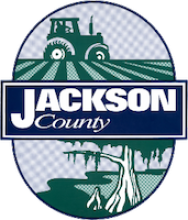In Florida, This Jackson County Business Owner So Over Crappy Internet Access
From the "Not Just Tired, but SICK and Tired Files" comes a letter to the editor of the Jackson County Floridian. Cynthia Cuenin, who has lived in the area for almost 30 years, says she's ready to call it quits and find a new community. Why? Because she can't get the Internet access she needs for her business.
Not only are the service options unacceptable, but the prices are too high. Cynthia also expresses exasperation at the negative impact on her children's education:
I also have two school-aged children who can’t even get online to do their dual enrollment at Chipola with enough confidence to take a test online! We live in unincorporated Jackson County, outside of Grand Ridge, very near I-10, which has high speed fiber optic cables running down it!
She notes that she pays around $250 per month for 25 Mbps, which rarely reaches the advertised speeds. "Right now I am at 1.97 Mbps for download speed!" she writes (exclamation points hers).
Jackson County has contemplated their connectivity problems in the past. Most recently in the spring of 2019, county leaders discussed potential public-private partnerships. In 2018, areas in rural Jackson County were targeted for Connect America Fund Phase 2.
Florida is one of 19 states that restrict local telecommunications authority. If Cynthia's local community were encouraged rather than discouraged from investing in high-quality Internet access infrastructure, she would have more options and the providers offering service would be compelled to do a better job at more reasonable prices. She writes:
The internet is no longer a luxury; it is a necessity, like electricity. One cannot function in today’s society without it!




